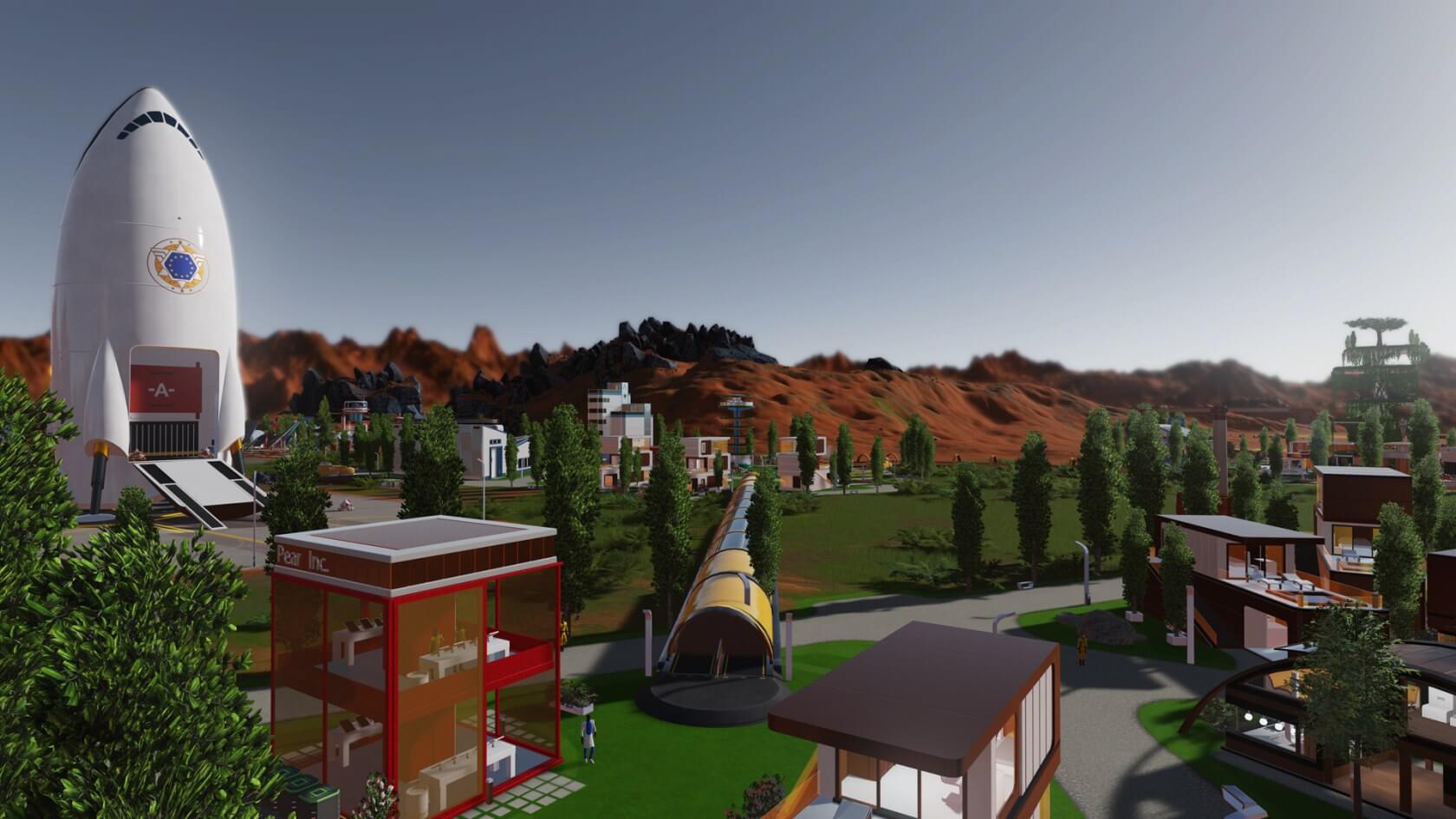
Bulgarian game development studio Haemimont Games has finally released the latest expansion to its popular Mars colonization strategy title "Surviving Mars," and it's a juicy one. Dubbed "Green Planet," the expansion takes an already compelling gameplay loop involving careful resource management and adds a new element into the mix: terraforming.
In the basic Surviving Mars experience, players start off by laying the groundwork for human colonization. They use a wide array of drones, rovers, and other semi-intelligent machines to gather resources and construct all the necessities for human life on mars - giant climate-controlled domes, oxygen production machines, hydroponic farms for food, and moisture vaporators for water (as well as several buildings designed to fill their social, luxury, and educational needs).

In time, humans will land on the planet, and your priority switches from preparation to full-on survival as you carefully handle your colonists' needs amidst escalating problems (related to resource shortages, mental breakdowns, and more).
All of that is reasonably entertaining to manage by itself, but Green Planet's terraforming tools create an added layer of strategic depth. The DLC tasks you with slowly but surely raising several new planetary attributes: atmosphere, temperature, water level, and vegetation. The end goal of the expansion is to turn Mars into a harsh, but habitable second home for humanity.
You'll raise these attributes by capturing ice asteroids to melt down for water (the higher the water level, the more oceans, lakes, and ponds that will appear on Mars), using seed spreaders to grow lichen, trees, bushes, and grass, and constructing greenhouse gas-emitting factories to raise the planet's temperature.
Over time, your terraforming efforts will lead to various Mars hazards becoming less frequent or dissipating entirely. For example, as the Red Planet's atmosphere grows, meteors and asteroids will burn up before they crash into your vital structures and dust storms will eventually stop wreaking havoc on your colony. With enough time and dedication, you can even restore enough of Mars' atmosphere that your colonists can live without the domes, breathing in clean outside air.

Courtesy of a code provided by Haemimont Games, I was able to take Surviving Mars and its latest DLC out for a test drive. As a result, I can confirm that the expansion is just as fun (and challenging) as it sounds. Seeing what was once a barren, orange wasteland slowly change into a lush, green, forest-filled paradise (of sorts -- Mars is still a tough place to live) is extremely satisfying; particularly given the effort required from the player to make it all happen.
With that said, the process is also quite slow, and it may turn off more casual players from ever reaching the end goal of a dome-free, vegetation-rich colony. The many crises players will have to deal with (ranging from the previously-noted natural disasters to bizarre alien mysteries) during their playthrough probably won't help.
During my own Green Planet run, I spent roughly 21 hours over a week building up my colony to the point where I could open up the domes -- for some players, that may be an unreasonable amount of time to sink into a single goal.

If you're not one of those individuals, though, you can take Green Planet out for a spin right now. The expansion and the game's new, smaller sub-DLC "Project Laika" (which adds animals) can be had for $19.99 and $5.99 respectively. If you don't already have the base game, Surviving Mars itself will run you $29.99 (though it's currently on sale for about $10.22 through the weekend).
In terms of platform availability, Surviving Mars and its DLC can be purchased for PS4 or the Xbox One on console (complete with mod support) and Linux, Mac, or Windows for PC users.
https://www.techspot.com/news/80114-surviving-mars-latest-expansion-you-terraform-red-planet.html